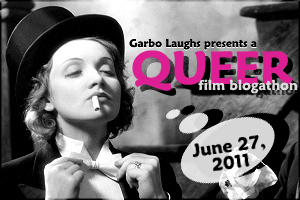This is my second entry in the 1967 Blogathon, hosted by Silver Screenings and The Rosebud Cinema. Pay them a visit over the weekend and check out all the other writing by fine bloggers across the net.
1967 was a watershed year for the wu xia film as it began its transformation into the modern martial arts movie. Chang Cheh, working within the Shaw Brothers studio system, began his major work with The One-Armed Swordsman. King Hu, who had directed the successful Come Drink With Me for the Shaws a year earlier had broken ranks and moved to Taiwan. No longer under the thumb of Sir Run Run Shaw and the restrictive rules imposed by the Shaw formula, Hu was free to explore his own ideas of what the wu xia film was capable. The resulting film, Dragon Inn (sometimes called Dragon Gate Inn) is entirely under Hu's control. It's a film that casts a long shadow: remade twice (both times by Tsui Hark) and a centerpiece of Ming-liang Tsai's arthouse film, Goodbye Dragon Inn, in which Hu's film is a talisman for a fading cinema, it's one of the foundational films of Taiwanese cinema. This is in addition to being one of the first shots fired in what would eventually become the Hong Kong New Wave of the 1980s and 90s. It's all of this, yes. An important movie. But more than that, it's hugely entertaining. These things are not unrelated.
The story here follows a Ming dynasty conflict between the forces of the eunuch, Zhou, who heads the secret police and of General Yu, who opposes him. As the film opens, General Yu has been defeated and Zhou commands that his children be exiled. He can't kill them outright for fear that Yu's still powerful friends will take reprisals for such an action. Instead, he orders his forces to kill them secretly as they travel out of the empire. Meanwhile, Yu's friends take steps to protect the children and help them escape. Zhou's forces take up position at the frontier inn at Dragon Gate, without knowing that the innkeeper, Mr. Wu, is one of General Yu's most favored lieutenants. Mr. Wu has invited several of General Yu's most skilled fighters to his in to help Yu's children escape. These include Xiao, a cynical kung-fu master, and the brother and sister team of Chu Hei and Chu Chi. They are all distrusted by Zhao's underlings, who contrive to eliminate prying eyes. The interactions between the guests at the inn are a deadly game of murder, all while pretending that nothing is amiss. This escalates as both sides try to find the general's children and Zhou's army lays siege to the inn. When, at last, the general's children are found by their friends, they must run the gauntlet of Zhou's army standing between them and the frontier...
One of the sources of friction between Hu and the Shaws was their insistence on speed of production. Hu was meticulous in his methods, eschewing the Shaw's practice of editing their films in-camera and, in particular, their strangling insistence on a 90 minute running time. Hu took his time to assemble his films in post-production and they often ran much longer than their contemporaries. The living end of this was A Touch of Zen, which originally clocked in at five hours and even now runs to three (the footage for its initial cut is now lost). At just shy of two hours, Dragon Inn seems modest by comparison, but set next to the Shaw films, it's positively epic.
The fight choreography of the martial arts films of the mid-sixties were an evolving thing. The elaborate acrobatics and choreographies that would come to define the genre after Bruce Lee and Jackie Chan were years in the future. King Hu's early films are heavily influenced not only by Peking Opera, but also by the samurai film. Many of the fight scenes in Dragon Inn wouldn't be out of place in the chambara films that are its contemporaries. Hu embellishes these sequences with a roving camera that mimics the movements of his fighters--something learned from Kurosawa, presumably--and his own unique style of editing in fragments. Hu's style has been described as the cinematic equivalent of a zen koan, in which actions are elided by glimpses. He edits away from the completion of actions, or from their beginnings, allowing the audience to start or end those actions in their minds' eye. Although wire-fu already existed in the wu xia film, Hu uses it sparingly, preferring to elide the superhuman abilities of his martial artists with discreetly placed trampolines or through cinematic trickery. The way Hu edited his films was more influential than his staging of fights, particularly to the Hark influenced filmakers of the 1980s. Dragon Inn gently subverts elements of later martial arts films before the fact, though. One such is its depiction of the one man versus many fight scene: a convention of the martial arts film features powerful martial artists against entire armies who surround and attack them (often singly, but sometimes not). Dragon Inn has several of these kinds of scenes, but as the film progresses, it's the heroes who wind up surrounding powerful enemies, overcoming them with cooperation rather than any kind of macho posturing.
Perhaps the most influential element of Hu's films is the role of women. Dragon Inn's Chu Hei is an evolution of Come Drink With Me's heroine, Golden Swallow, a woman in a man's world who is mistaken for a man because of her kung fu skills and her fierce demeanor. You can see echoes of Hu's heroines throughout the Hong Kong New Wave and into contemporary art kung fu films like Crouching Tiger, Hidden Dragon or House of Flying Daggers. Hu's films stand in stark contrast to Chang Cheh's films, in which women barely figure--Cheh's follow-up to Come Drink With Me, Golden Swallow, sidelines its own title character in favor of his dudebro heroes, for example.
One metric of whether a wu xia film is good is whether it can stand on its own without the martial arts sequences. Dragon Inn's best sequences are not necessarily its fight sequences. The deadly games of cat and mouse--particularly the ones featuring a flagon of poisoned wine--in the film's second act are exercises in Hitchcockian suspense, re-imagined as a dance. This is a conflation that adds a dry comedic wit to the film. It's an element of the film that had a profound influence on filmmakers like Liu Chia-Liang, who would go on to create elaborate reworkings of these scenes in many, many films. More, these scenes act as resting points between the requisite fight scenes without losing their kinetic thrill.
If Dragon Inn has a major flaw, it's that it indulges in a convention of the Shaw films of ending right at the climax, with no falling-action to follow it. Maybe I'm indulging in a viewpoint weaned on Western traditions of drama. Ironically, this is a film that follows the Aristotelian unities of drama to a "T." In any case: The big fight between our heroes and the eunuch, Zhao, is a weird, extended duel in which subjective cameras disorient its characters and the audience alike, and then, abruptly, it's over and the credits appear. In some ways, this is a more globally conceived version Hu's aesthetic of an incompleted action--it elides a longer film without providing one. Still, it's hard for me to complain about this, because the rest of the film is just packed. It's not an ungenerous film at all when it comes to either the pleasures of genre or cinematic inventiveness, but it does feel unfinished somehow. Perhaps this is the element of the film that has invited its inheritors to remix and remodel so many of its elements. It certainly leaves the audience itself wanting more.
As a final note: for a film and filmmaker as important and influential as Dragon Inn and King Hu, neither has been well-served by home video. Most of the director's films are either unavailable entirely or available on shoddy editions. Both this film and Hu's even more influential A Touch of Zen are badly in need of restoration.

I'm trying out Patreon as a means of funding my blogs. They don't have a widget yet, so this link will just have to do. If you like my writing and art and if you'd like to support Krell Laboratories and Christianne's Art and Comics, please come on over and pledge. Thanks.



















4 comments:
I like the look of this film, based on your screencaps. Also, the thing about your review of these films is that the background story seems just as interesting as the movie itself.
Thanks again for being part of the '67 blogathon. I love that these films have been included in this influential year.
I first saw this film just two years ago, as part of my quest to see the 1000 greatest films (compiled over at They Shoot Pictures, Don't They?) and immediately fell head over heels for the damn thing. I do know a lot about cinema and film history (not to sound all that egotistical), but one of my blatant weak and/or blind spots is that of Chinese and Taiwanese cinema.
So when I went into this film (which I watched projected onto the big screen of the arthouse cinema I ran at the time) I did not know much of what to expect. I had seen Tsai's Goodbye Dragon Inn already, but only a handful of Chinese films. What I got was a beautiful film inside and out. Beautiful indeed. Great write-up on the film. Love your blog by the by, and I will try to comment more often than just this once.
See ya 'round the web. All Things Kevyn
Hi, Kevyn,
Thanks. I'm green with envy. I've only ever seen Hu on video, either on bootlegs back in the 1990s or substandard editions from fly by night video companies (there's not much difference between the two, I think).
Hi, Silver!
This has been fun. I'm glad I signed up!
One of my faves! Nice to see a review of this classic chop-socky!! I really need to go back through all these great movies, now that DVD has made quality prints and access so much better. Hooo-waaaah!
Great write-up. Thanks!
Post a Comment